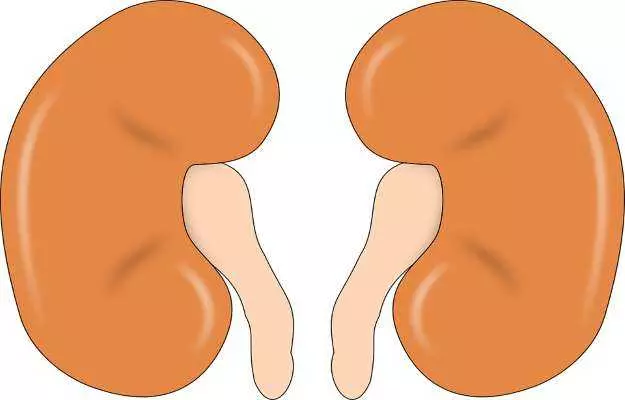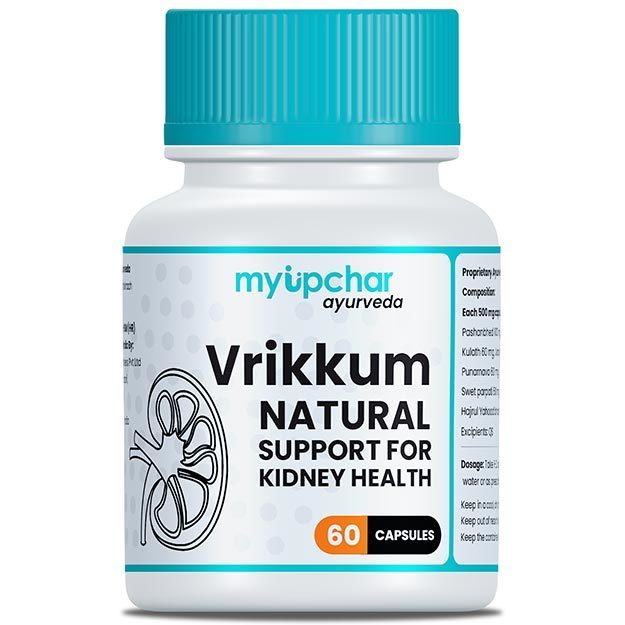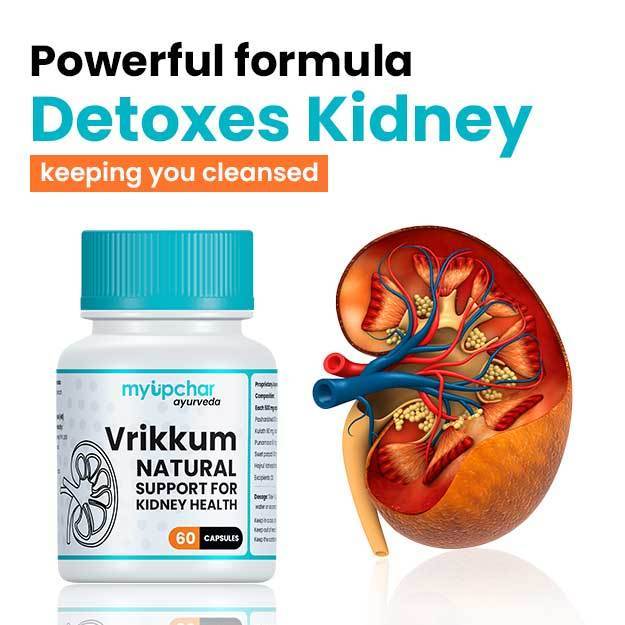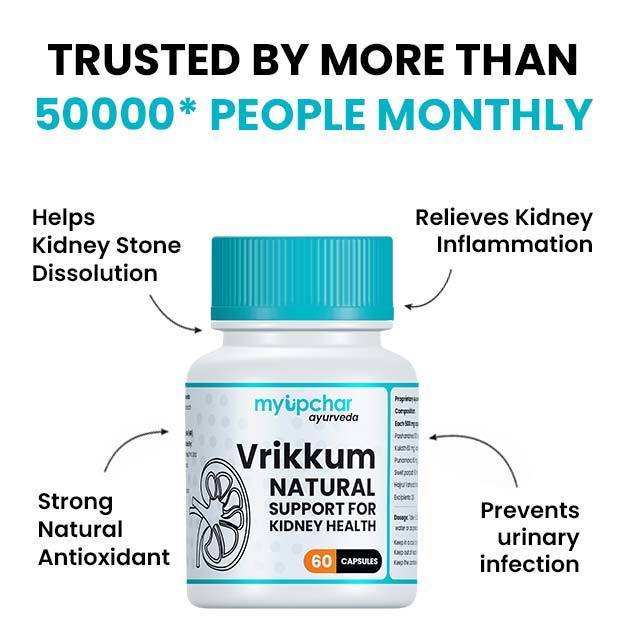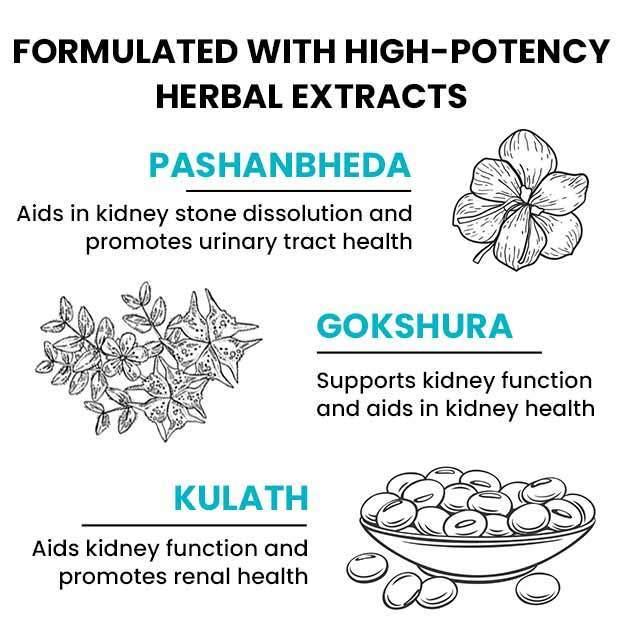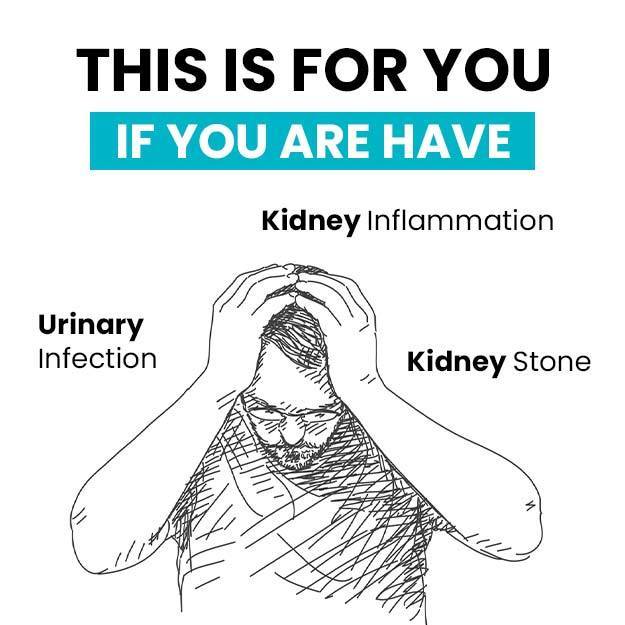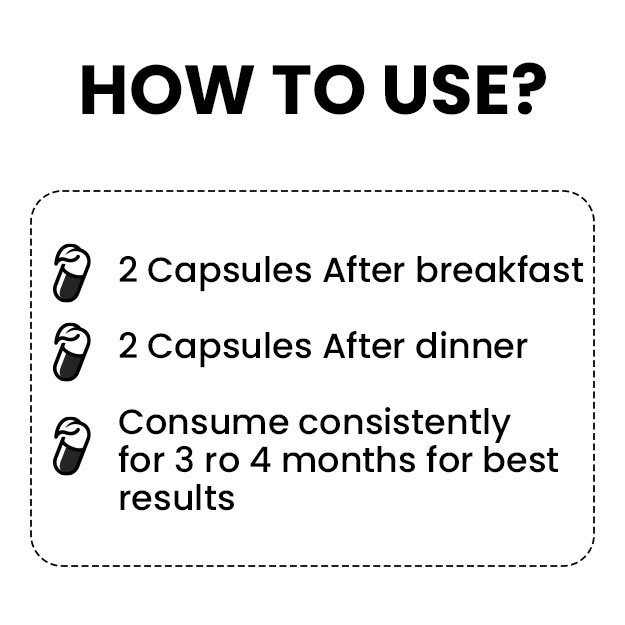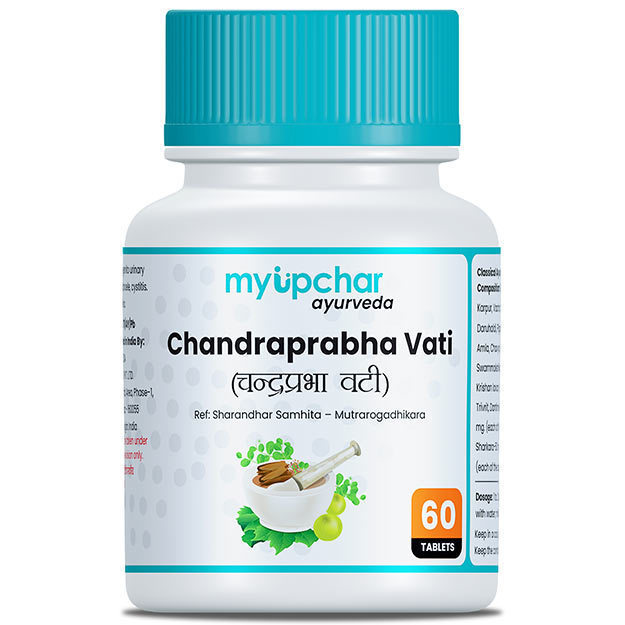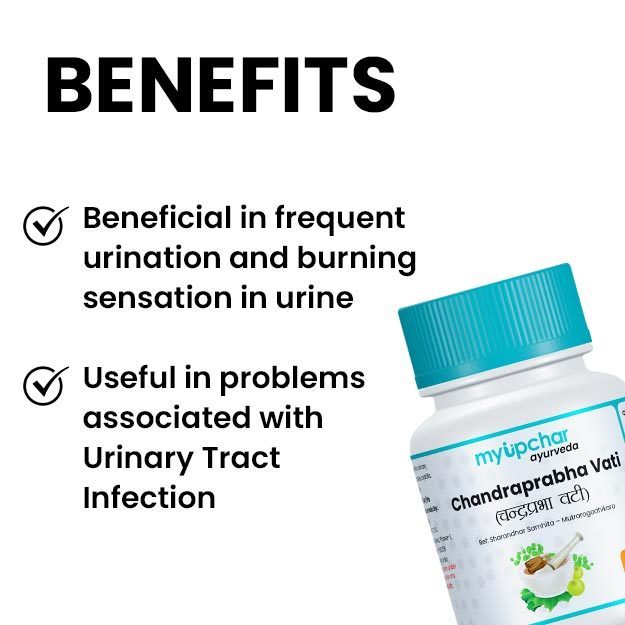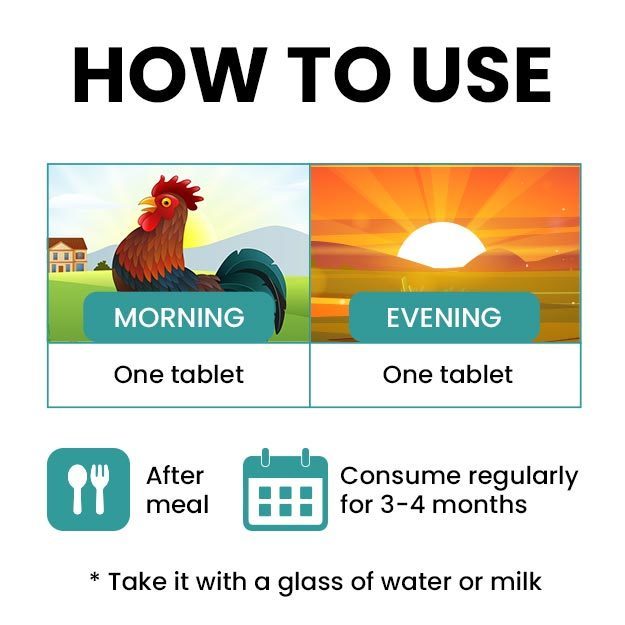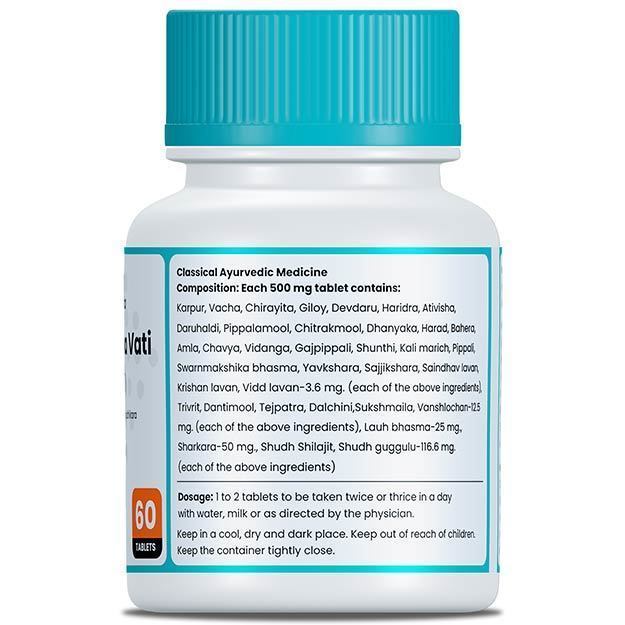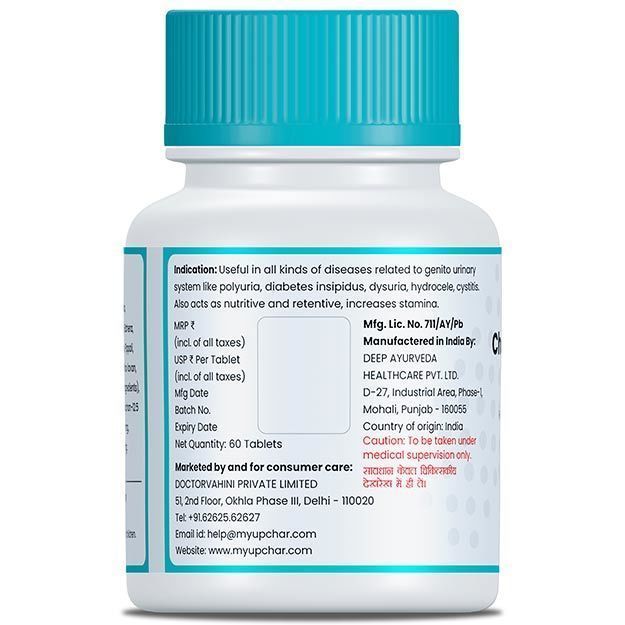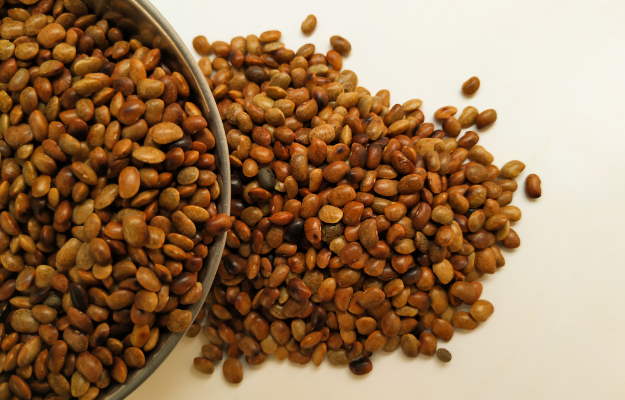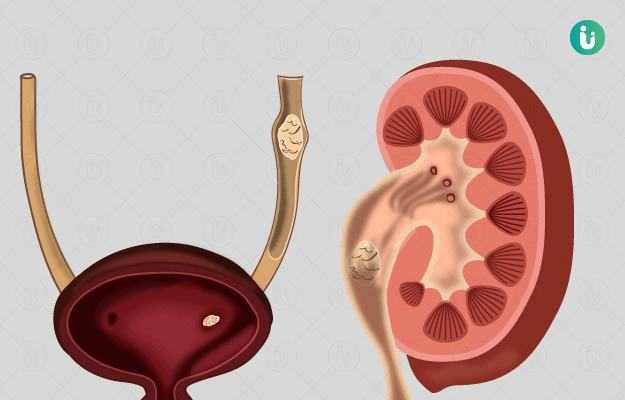Stone pain occurs due to the presence of stones between the kidney and the urinary tract. This pain is unbearable and extremely intense. Its pain depends on the size of the stone in the urinary tract. If there is obstruction in the urinary tract due to stones, the patient may have to face a serious condition. In severe cases of stone pain, operation is done, while most of its cases can be cured by general treatment only. During its treatment, the stones gradually come out through urine. There are many methods of treatment for stone pain. Let us know further why stone pain occurs, how and where stone pain occurs and how to prevent or relieve stone pain.
(Read more - Fruits to eat and avoid in kidney stone)
- Causes Of Kidney Stone Pain
- Why Does Kidney Stone Pain Occurs?
- Where Does Kidney Stone Pain Occur
- Treatment Of Kidney Stone Pain
- Summary
Causes Of Kidney Stone Pain
Stone pain is caused by stones in your urinary tract. This pain can occur anywhere from your kidneys to your urinary vessels, bladder and urethra. Stones formed in crystal form due to the mixing of calcium and uric acid can form anywhere in the urinary tract. These stones can vary greatly in size. Many stones are of very small size. But when the stones are large, their large size can cause severe pain to you. There are many types of treatments available for stones that form between the kidney and the urinary tract. Many of its cases can be corrected without surgery.
(Read more - Know How to Prevent Kidney Stones)
Why Does Kidney Stone Pain Occurs?
Pain due to stones starts due to obstruction in the urinary tract. This occurs mainly in the ureters. Due to the presence of stones in the ureters, the tissues in the affected area start getting stretched. Not only this, swelling occurs in the affected area and due to stones, the normal flow of urine starts getting obstructed. Stones cause spasm in the ureters. In this condition there is severe pain. Stone pain can occur due to many reasons. The reasons due to which stone pain may occur are being explained below.
(Read more - Vegetables to eat and avoid in kidney stones)
- Buildup of excess calcium in the urine.
- Gastrointestinal diseases, such as Crohn's disease and ulcerative colitis.
- Gout, a disease caused by uric acid.
- Taking many types of medicines.
- Cystinuria (a genetic disease that increases the amino acid cystine in the urine).
- Obesity
- Surgeries performed for gastrointestinal diseases, such as gastric bypass surgery.
- Any member of the family has ever complained of stones.
- Consuming a diet high in oxalate and protein.
- The special condition of thyroid increases the chances of stone formation.
- Urinary tract infection.
(Read more - Kidney stone analysis)
Where Does Kidney Stone Pain Occur
This problem is known as kidney stone pain or stone pain. Many people compare its pain to the labor pain women experience during childbirth. This pain starts when the stones pass through the small and narrow ureters. Due to this, there is blockage in the ureters, which puts pressure on the kidneys. Due to its effect, nerves are affected and the brain starts receiving pain signals. Stone pain can occur at any time. Due to change in the location of the stone, the location and intensity of pain also starts changing. In this you feel pain under the ribs on your back. When the stone changes its place and moves downwards in the urinary tract, the intensity of its pain also affects your lower abdomen and the area connecting the penis and thighs. Larger size stones cause more pain. But the intensity of pain does not always depend on the size of the stone. Sometimes, shifting of small stones and blockage may cause more pain.
(Read more - Bladder stones)
Treatment Of Kidney Stone Pain
Before treating stone pain, the doctor collects information about your pain symptoms and the size of the urinary tract stone. For this, the doctor examines your blood and urine to check the condition of growth of stones. With the help of CT scan, the size of the stones in your kidney and bladder related organs is known. If the size of your stones has increased, then the doctor may tell you one of the following types of treatment.
Extracorporeal Shock Wave Lithotripsy (ESWL)
In extracorporeal shock wave lithotripsy, high frequency sound waves from an external source are used. Through which the stones present in the kidney are broken into small parts. After this, these small parts come out of your body through urine.
Ureteroscopy
In ureteroscopy, the doctor inserts a thin-sized scope into your urethra and bladder and removes the stones.
(Read more - Fruits to eat and avoid in kidney stone)
Percutaneous Nephrolithotomy (PCNL)
In Percutaneous Nephrolithotomy, the stone is taken out through a nephroscope inserted into the kidney from the patient's back.Apart from this, the doctor gives you some medicines to relieve the pain of stones. Due to which the causes of stones get reduced. This includes the following . In this you are given nonsteroidal anti-inflammatory medicines.
- Giving medicine to relieve muscle spasms
- Giving opioid (pain relieving drug) medicines.
- antibiotic
- Calcium channel blockers
- Corticosteroids
- Alkalizing agents
- Medicines that block alpha-1 (Selective alpha-1 blockers)
(Read more - Lithotripsy: Types, indications)
Summary
Correct diet and lifestyle is essential to prevent stone pain. Drinking adequate amounts of water, which keeps the urine diluted and reduces the chances of stone formation. Additionally, intake of oxalate-rich foods such as spinach, tea, chocolate, and nuts should be limited as they increase the risk of kidney stones. Excessive consumption of salt and protein can also increase the problem of stones, hence they should be consumed in controlled quantities.

